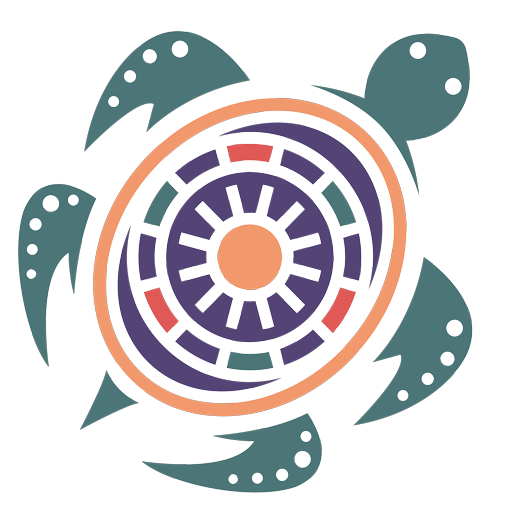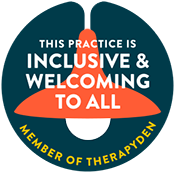Are you An Empath? (You Probably Aren’t Just Attracting Narcissists)

By Brenda Stephens, Licensed Professional Clinical Counselor
Do You Consider Yourself an Empath? You Probably Aren’t Just Attracting Narcissists.
If you’ve ever identified as an empath, chances are you’ve been told some version of this: “Empaths attract narcissists.”
And while there’s some truth to that, it’s not the full picture.
Yes, narcissists are drawn to empathic energy. But they’re not the only ones. As a licensed therapist with over two decades of experience treating survivors of narcissistic abuse and as someone who identifies as an empath myselfI can tell you that being energetically open, emotionally attuned, and physiologically sensitive often attracts all kinds of people.
Some are in pain. Some are in crisis. Some are just looking for a safe space to land. And without boundaries, your capacity for connection can quietly become your source of depletion.
I’ve seen this pattern in hundreds of clients. I’ve lived it. My children have been joking with me since they were young that I must have a sign on my forehead that says “Tell me your life story.” People open up to me within minutes at airports, in grocery stores, in passing conversation. Most of them have no idea I’m a therapist, they just feel something and they lean in.
That “something” is empath energy. And if you have it, you probably already know.
What It Means to Be an Empath
Empaths aren’t magical beings. They’re humans with finely tuned nervous systems, often shaped by complex childhood dynamics, where emotional vigilance was required for safety.
Over time, this sensitivity becomes a personality trait. You read the room before you even step into it. You know what someone is feeling before they say a word. You feel everything, sometimes more than you want to.
This can be a beautiful strength. But it can also become a liability if you haven’t learned how to protect your energy.
Why Narcissists Are Drawn to Empaths
Let’s start with what you’ve probably already heard: narcissists seek out people who will admire them, soothe them, and reflect back their inflated self-image. Empaths are perfect candidates for this dynamic.
You may:
- Give people the benefit of the doubt
- Take responsibility for fixing things
- Struggle to say no
- Feel guilty when you prioritize yourself
- Overfunction in relationships
To a narcissist, this is the perfect setup: your empathy becomes their fuel. And once they see you’re willing to meet their emotional needs while ignoring your own, the dynamic becomes one-sided fast.
But narcissists aren’t the only ones who find you appealing.
You’re Probably Attracting More Than Just Narcissists
As an empath, your presence is calming. People feel safe with you. But not everyone who feels safe with you has the capacity to be safe for you.
You may find yourself in relationship with people who:
- Are constantly in crisis
- Overshare without boundaries
- Seem emotionally helpless
- Lean on you for things they could do themselves
These people aren’t always malicious. Many have unhealed trauma of their own. But if you’re not careful, you can end up surrounded by takers even if they don’t mean to take.
You Might Recognize These Dynamics
These are common energy draining patterns empaths often encounter. You might recognize someone in your life who fits one (or more) of these profiles:
1. The Emotionally Unanchored
They always seem to be in crisis. You find yourself trying to stabilize them, regulate their emotions, and serve as their grounding force.
Reminder to self: I can care without being consumed.
2. The Disempowered Responder
They regularly look to you to solve problems, make decisions, or give advice. You end up feeling responsible for their outcomes.
Reminder to self: I don’t need to carry what isn’t mine.
3. The Unfiltered Sharer
They vent, process, or emotionally unload without checking in on your capacity. They rarely ask how you’re doing.
Reminder to self: I am allowed to have limits around how much I receive.
4. The Well Meaning Over-Depender
They start out with small requests, but over time, they rely on you for everything. It becomes hard to step back without guilt.
Reminder to self: I can be kind and create space for myself.
Empath Energy Needs Boundaries
Here’s the truth: you don’t have to stop being who you are. You just need to learn how to protect it.
Boundaries aren’t walls. They are filters. They help you decide what and who gets access to your emotional world.
Ask yourself:
- Who leaves me feeling nourished after a conversation?
- Who leaves me feeling depleted, tight, or resentful?
- Where might I need to step back without apology?
Your ability to connect is a gift. But not everyone is entitled to it.
Closing Thoughts
If you identify as an empath, you are not just a magnet for narcissists. You’re a magnet for intensity, vulnerability, and emotional need. That doesn’t mean you’re here to absorb it all. It means you have a responsibility to yourself to choose what you allow in.
At the Narcissistic Abuse Recovery Center, we help survivors reclaim their energy, rewire their nervous systems, and rebuild boundaries that honor both their sensitivity and their strength. We do therapy for survivors of narcissistic abuse.
Being empathic is not the problem. Being unprotected is.






